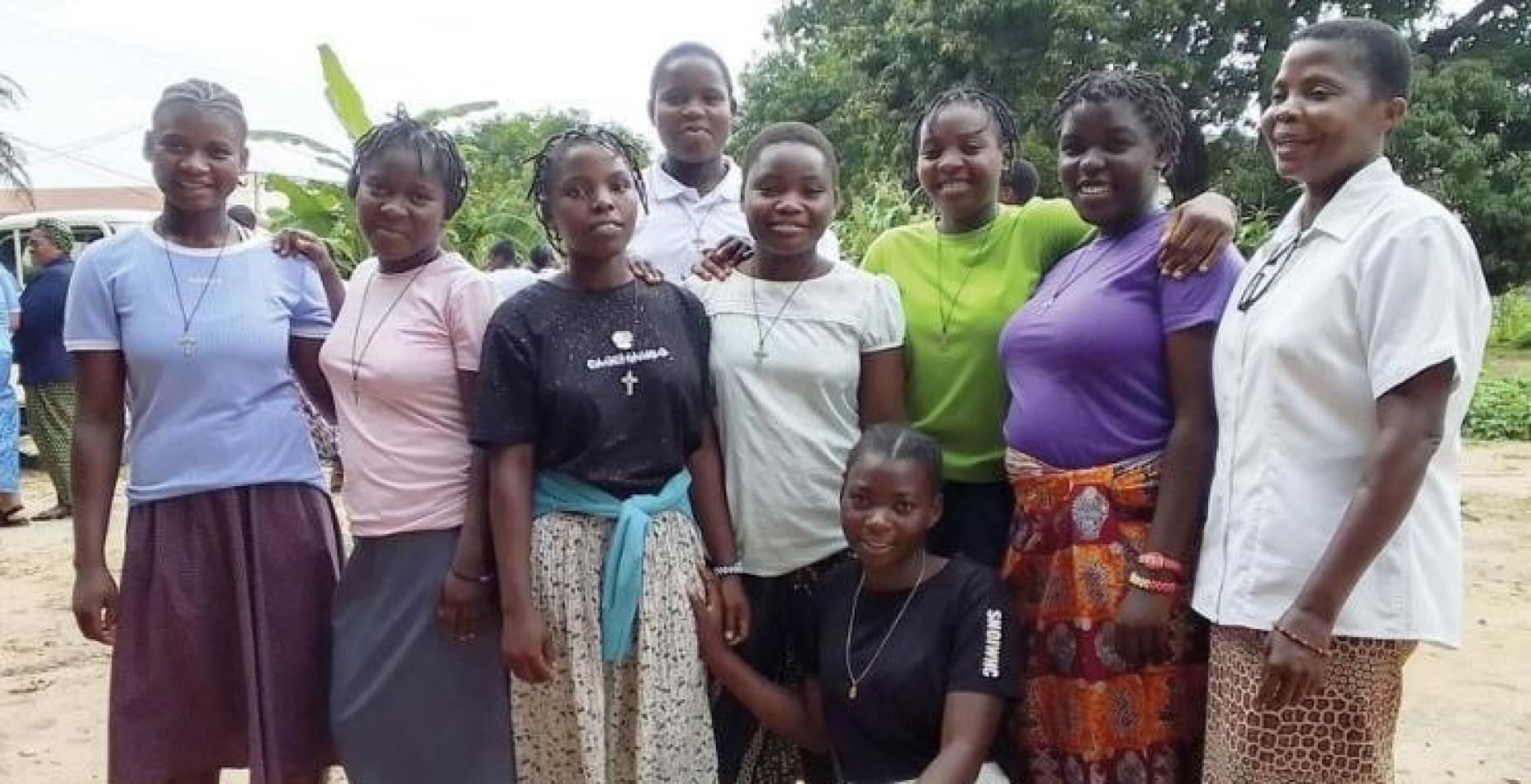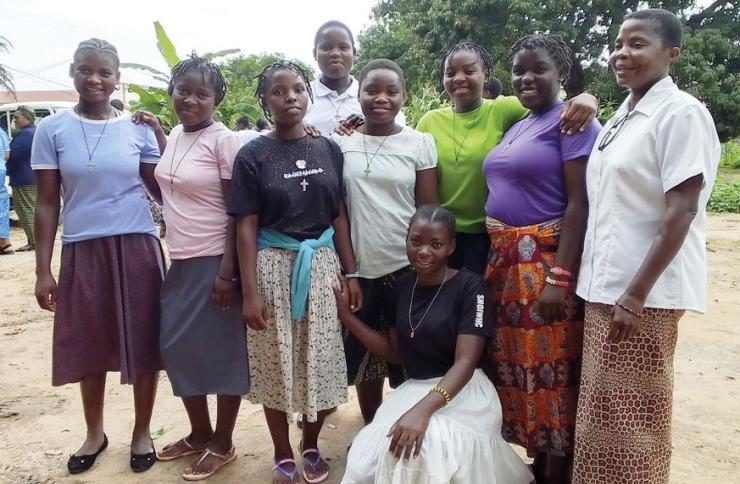Daniele Comboni
Missionari Comboniani
Area istituzionale
Altri link
Newsletter
Monday, February 12, 2024
The Comboni missionary sister Ana Júlio Ramujane [first on the right, with a group of young girls in Nampula] shares her experience in Nampula, Mozambique, of helping young women make life choices that make them feel part of God’s great plan. [Comboni Missionaries]
I am Mozambican, and I come from the province of Zambezia, in the centre of the country. I grew up there, I met the Comboni Missionaries and I decided to be part of them when I saw their way of living and working. After my first vows, in 2007, I was sent to the Democratic Republic of Congo, where I lived and worked for 14 years in different missions: Kinshasa, Butembo and Kisangani. In 2022 I returned to my country.
While I was in the Congo I came home several times on holiday, but now I’m here to stay and work. I thought I knew my land and my people, but nothing could be further from the truth. Mozambique has greatly changed, especially in the north, where jihadist attacks persist and people live in fear. I am surprised by the socio-political context, which I don’t understand very well. I also find the life of the local Church very complex.
However, I find people have a great thirst for God and many young people are interested in the missionary vocation. Reality or escape? It is not easy to discern the movements and feelings that lead a young person to opt for a lifestyle as complicated and demanding as ours. At the mission, we have a group of girls who come to study and who want to get to know us more closely. We offer them human and Christian after-school education and accompany them in their daily lives. There is another group of girls that we meet once a month and give them training courses. They are all part of the ‘Come and See’ group and live in villages outside Nampula.
In this process of discernment, I emphasize the importance of the families which I often visit to find out what they feel about the path their daughters are taking. We must be very careful because sometimes the vocation is seen as social betterment, a possibility to earn a living or leave the country. The important thing is to always seek the good of the young women so that they can carry out a free and conscious vocational discernment.
One of the occupations that takes much of my time and energy is of visiting the Marratane refugee camp 40 kilometres from Nampula. Nampula is the capital of the province that bears the same name. The nearby province of Cabo Delgado is experiencing a situation of growing insecurity due to persistent attacks by armed groups. It is not certain who they are or what they want. This causes large flows of refugees, many of whom come to our province. The help we provide is certainly limited, but we try to offer hope through our presence and our prayers. The women who participate in these meetings tell us about their lives, their difficulties and how they keep going with the help of God.
I live with the joy of feeling part of Comboni’s dream of “saving Africa” with Africa, a missionary pedagogy that sought to prepare Africans so that, in turn, they could train their brothers and sisters. Despite my limitations, I see myself as an African woman who serves her brothers and sisters. This joy also brings a great challenge because it is a great responsibility to accompany young women to make a free option for Christ when we live in an environment where insecurity is our daily bread.
In this situation, we place all our trust in Jesus who is the best companion in all stages of life. Saint Daniel Comboni wanted to have a thousand lives for the Mission; I, too, would like to have not just one life, but many lives to work in the Mission bringing some of a better future.





